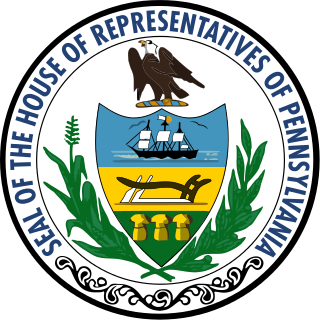
Although the 17th Amendment was not passed until 1913, some states elected their Senators directly before its passage. Oregon pioneered direct election and experimented with different measures over several years until it succeeded in 1907. Soon after, Nebraska followed suit and laid the foundation for other states to adopt measures reflecting the people's will. By 1912, as many as 29 states elected senators either as nominees of their party's primary or in conjunction with a general election.

The United States Senate elections of 1908 and 1909, some states elected their senators directly even before passage of the 17th Amendment in 1913. Oregon pioneered direct election and experimented with different measures over several years until it succeeded in 1907. Soon after, Nebraska followed suit and laid the foundation for other states to adopt measures reflecting the people's will. By 1912, as many as 29 states elected senators either as nominees of their party's primary or in conjunction with a general election. The Republicans lost two seats overall.

The 1808 United States Senate election in Pennsylvania was held on December 13, 1808. Michael Leib was elected by the Pennsylvania General Assembly to the United States Senate.

The 1814 United States Senate special election in Pennsylvania was held February 24, 1814. Jonathan Roberts was elected by the Pennsylvania General Assembly to the United States Senate.

The 1832-1833 United States Senate election in Pennsylvania was held on eleven separate dates from December 1832 to December 1833. On December 7, 1833, Samuel McKean was elected by the Pennsylvania General Assembly to the United States Senate.

The 1840 United States Senate election in Pennsylvania was held on January 14, 1840, after the regularly scheduled election in December 1838 was postponed due to the Buckshot War. Daniel Sturgeon was elected by the Pennsylvania General Assembly to the United States Senate.

The 1845 United States Senate election in Pennsylvania was held on January 14, 1845. Incumbent Daniel Sturgeon was re-elected by the Pennsylvania General Assembly to the United States Senate.

The 1851 United States Senate election in Pennsylvania was held on January 14, 1851. Richard Brodhead was elected by the Pennsylvania General Assembly to the United States Senate.

The 1857 United States Senate election in Pennsylvania was held on January 13, 1857. Simon Cameron was elected by the Pennsylvania General Assembly to the United States Senate.

The 1861 United States Senate special election in Pennsylvania was held on March 14, 1861. David Wilmot was elected by the Pennsylvania General Assembly to the United States Senate.

The 1863 United States Senate election in Pennsylvania was held on January 13, 1863. Charles Buckalew was elected by the Pennsylvania General Assembly to the United States Senate.

The 1869 United States Senate election in Pennsylvania was held on January 19, 1869. John Scott was elected by the Pennsylvania General Assembly to the United States Senate.

The 1875 United States Senate election in Pennsylvania was held on January 19, 1875. William A. Wallace was elected by the Pennsylvania General Assembly to the United States Senate.

The 1887 United States Senate election in Pennsylvania was held on January 18, 1887. Matthew Quay was elected by the Pennsylvania General Assembly to the United States Senate.

The 1893 United States Senate election in Pennsylvania was held on January 17, 1893. Incumbent Matthew Quay was re-elected by the Pennsylvania General Assembly to the United States Senate.

The 1901 United States Senate special election in Pennsylvania was held on January 15, 1901, after the regularly scheduled legislative election in January—April 1899 failed to elect a Senator. Former Senator Matthew Quay, who had left the Senate for nearly two years because of the political stalemate, was again elected by the Pennsylvania General Assembly to the United States Senate.

The 1905 United States Senate election in Pennsylvania was held on January 17, 1905. Incumbent Philander C. Knox was elected by the Pennsylvania State Assembly to his first full term in the United States Senate.

The 1909 United States Senate special election in Pennsylvania was held on March 16, 1909. George T. Oliver was elected by the Pennsylvania General Assembly to the United States Senate.

The 1801 United States Senate special election in Pennsylvania was held on December 17, 1801. George Logan was elected by the Pennsylvania General Assembly to the United States Senate.

The 1909 United States Senate election in Pennsylvania was held on January 19, 1909. Boies Penrose was re-elected by the Pennsylvania General Assembly to the United States Senate. This was the last Class III U.S. Senate election to be decided by the Pennsylvania General Assembly before the ratification of the 17th Amendment to the U.S. Constitution, which mandated direct election of U.S. Senators.









